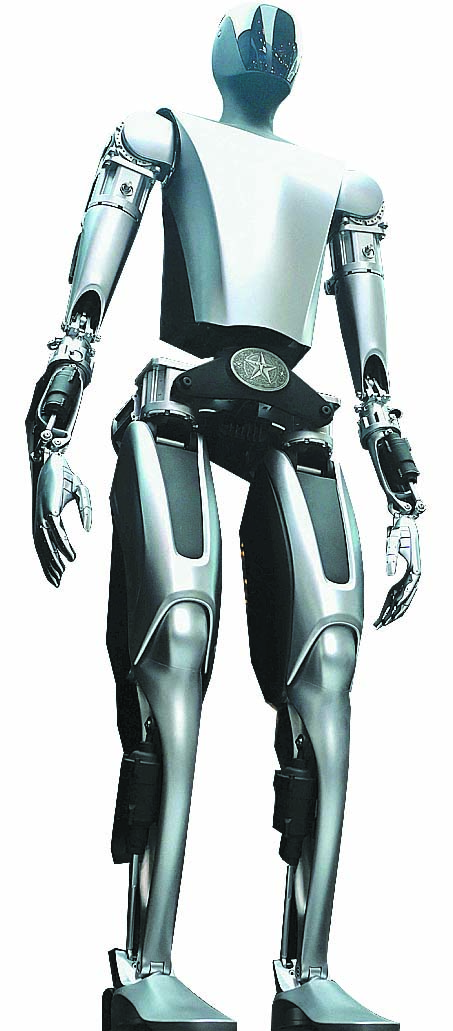Rise of the robots a lift for Shanghai


Name: Optimus
Manufacturer: Tesla Inc
Height: 172 cm
Weight: 56.6 kg
Capabilities: The robot can walk at a speed of 5 km per hour and carry a load of up to 50 kg. It can move to avoid obstacles, ascend and descend a slope with stability, as well as withstand shocks. Using cognitive intelligence provided by tools such as ChatGPT, the robot is capable of collaborating with humans to complete various movements.
Training, therapy
At Shanghai University of Sport, a table tennis training partner robot is helping players hone their skills.
The device has been mass produced in China since 2020, said Ren Jie, deputy dean of the China Table Tennis College.
Different from previous ball-serving devices, the robot developed by the China Table Tennis College, replicates the experience of competing against a human player. The degree of difficulty of drop shots, spin and ball speed can be altered to fit players' practice needs, Ren said.
"We always wanted to provide a good product that could benefit both our players and average people, and the development of AI(artificial intelligence) has made it possible in the sports arena," Ren said.
In addition to training professional players, the robot — costing about 50,000 yuan — has been used in primary and middle schools, as well as schools for students with disabilities, he added.
Meanwhile, Fourier Intelligence in Shanghai is at the forefront of producing rehabilitation robots with AI exoskeletons that are already being used in hospitals in China and overseas.
The AI exoskeletons enable people with lower-limb disabilities to stand up and walk, while they can also assist in the rehabilitation of people with paralysis to do activities such as grocery shopping.
"China will see rising demand for rehabilitation therapists in the future, but training rehabilitation therapists need a lot of time," said Gu Jie, founder and CEO of Fourier Intelligence. "If we use rehabilitation robots to help therapists do the tedious and strenuous training, our rehabilitation therapists can focus on creating better treatment solutions for patients."
Launched five years ago, Fourier Intelligence's rehabilitation robots are now being used in more than 2,000 hospitals in over 40 countries and regions.
Facing an aging society and labor shortage, Gu sees huge market demand in China for their rehabilitation and other robots.


















